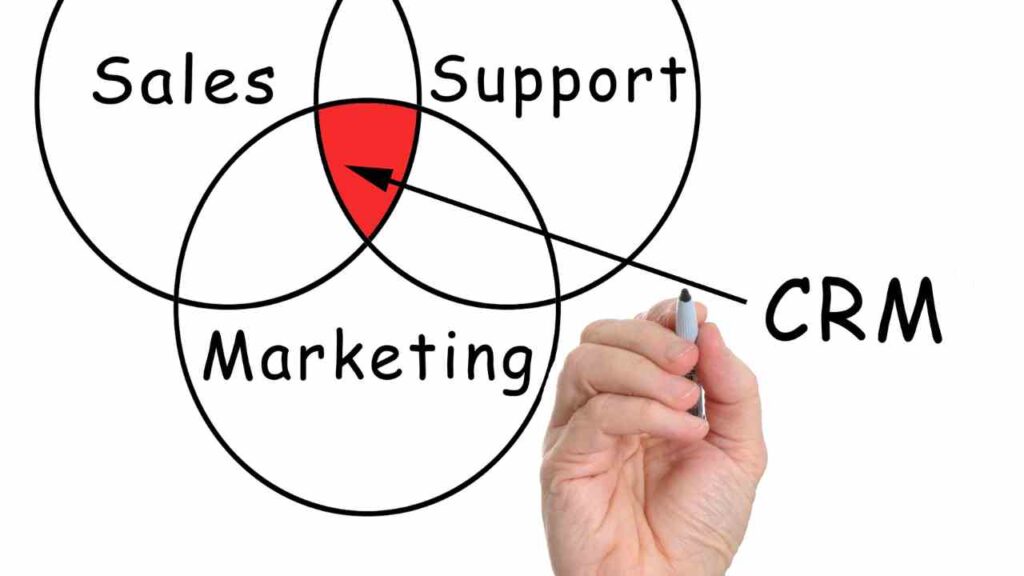Leveraging CRM to Streamline Contact Management

Customer Relationship Management
Managing contacts is a crucial aspect of any business, regardless of its size or industry. From capturing leads to nurturing relationships with existing customers, effective contact management is essential for driving sales and fostering customer loyalty. However, as businesses grow and customer bases expand, contact management can become increasingly complex and time-consuming. This is where Customer Relationship Management (CRM) systems come into play.
What is CRM?
CRM refers to the technology and strategies that businesses use to manage and analyze customer interactions and data throughout the customer lifecycle. It provides a centralized platform for storing and organizing customer information, enabling businesses to streamline their contact management processes and improve overall efficiency.
CRM systems offer a wide range of features and functionalities, including contact and lead management, sales automation, marketing automation, customer service management, and analytics. By leveraging these capabilities, businesses can gain valuable insights into their customers’ behaviors, preferences, and needs, allowing them to tailor their marketing and sales efforts accordingly.
The Benefits of CRM for Contact Management
Implementing a CRM system can bring numerous benefits to businesses, particularly when it comes to contact management. Let’s explore some of the key advantages:
1. Centralized Contact Database
A CRM system provides a centralized database where businesses can store all their contact information. This eliminates the need for multiple spreadsheets, sticky notes, or disparate systems, ensuring that all customer data is easily accessible and up-to-date. With a centralized contact database, businesses can avoid duplication, reduce errors, and improve data accuracy.
2. Efficient Lead Management
CRM systems offer robust lead management capabilities, allowing businesses to capture, track, and nurture leads effectively. By automating lead capture and qualification processes, businesses can ensure that no potential opportunity slips through the cracks. CRM systems also enable lead scoring, which helps prioritize leads based on their likelihood to convert, allowing sales teams to focus their efforts on the most promising prospects.
3. Streamlined Communication
CRM systems facilitate seamless communication between team members and departments. With a shared platform, employees can easily access and update customer information, ensuring that everyone is on the same page. This eliminates the need for back-and-forth emails or phone calls, saving time and reducing miscommunication. Additionally, CRM systems often integrate with email clients, enabling users to send and receive emails directly from the CRM interface.
4. Enhanced Customer Service
A CRM system enables businesses to provide better customer service by ensuring that customer information is readily available to support agents. When a customer reaches out for assistance, support agents can quickly access their contact history, previous interactions, and any ongoing issues. This allows for personalized and efficient customer service, leading to higher customer satisfaction and loyalty.
5. Improved Sales Performance
CRM systems offer powerful sales automation features that can significantly improve sales performance. By automating repetitive tasks such as data entry, follow-ups, and pipeline management, sales teams can focus more on selling and building relationships with prospects. CRM systems also provide real-time visibility into sales pipelines, allowing sales managers to identify bottlenecks, track performance, and make data-driven decisions to drive revenue growth.
Case Study: XYZ Company
Let’s take a look at how XYZ Company, a small e-commerce business, leveraged a CRM system to streamline their contact management processes and achieve remarkable results.
Before implementing a CRM system, XYZ Company relied on spreadsheets and manual data entry to manage their contacts. This approach was time-consuming and prone to errors, leading to missed opportunities and frustrated customers.
After implementing a CRM system, XYZ Company experienced several key benefits:
- Centralized contact database: All customer information was stored in one place, eliminating the need for multiple spreadsheets.
- Efficient lead management: The CRM system automated lead capture and qualification processes, ensuring that no leads were overlooked.
- Streamlined communication: Employees could easily access and update customer information, improving collaboration and reducing miscommunication.
- Enhanced customer service: Support agents had instant access to customer information, enabling personalized and efficient customer service.
- Improved sales performance: Sales teams could focus more on selling, thanks to automated tasks and real-time visibility into sales pipelines.
As a result of these improvements, XYZ Company experienced a 30% increase in lead conversion rates, a 20% reduction in customer churn, and a 15% increase in overall sales revenue within the first year of implementing the CRM system.
Choosing the Right CRM System
When selecting a CRM system for contact management, it’s essential to consider your business’s specific needs and requirements. Here are some factors to consider:
1. Scalability
Ensure that the CRM system can scale with your business as it grows. Look for a solution that offers flexible pricing plans and the ability to add or remove users easily.
2. Integration Capabilities
Check if the CRM system integrates with other tools and platforms that your business uses, such as email clients, marketing automation software, or e-commerce platforms. Seamless integration can streamline workflows and enhance productivity.
3. Customization Options
Consider whether the CRM system allows for customization to align with your business processes and terminology. Look for features like custom fields, workflows, and reporting options.
4. User-Friendliness
Choose a CRM system that is intuitive and user-friendly, as this will encourage adoption among your team members. Look for a clean and modern interface with easy navigation.
5. Customer Support
Ensure that the CRM provider offers reliable customer support, including documentation, tutorials, and responsive customer service. This will be crucial in case you encounter any issues or need assistance with the system.
Conclusion
Effective contact management is vital for businesses to succeed in today’s competitive landscape. By leveraging a CRM system, businesses can streamline their contact management processes, improve efficiency, and drive sales growth. A centralized contact database, efficient lead management, streamlined communication, enhanced customer service, and improved sales performance are just some of the benefits that CRM systems offer.
As demonstrated by the case study of XYZ Company, implementing a CRM system can lead to significant improvements in lead conversion rates, customer churn, and overall sales revenue. When choosing a CRM system, consider factors such as scalability, integration capabilities, customization options, user-friendliness, and customer support.
With the right CRM system in place, businesses can leverage contact management to build stronger relationships with customers, drive revenue growth, and achieve long-term success.
Visit https://SaasExpert.ca – Your All-In-One Sales and Marketing Platform for small businesses, agency owners, and marketers.
Check out our “People Also Ask” section for more detailed information about CRM’s.
Learn more about “Implementing CRM for Contact Management” right here.
Frequently asked questions about Leveraging CRM to Streamline Contact Management.

What is the significance of CRM in streamlining contact management? 🤔
CRM, or Customer Relationship Management, is a game-changer when it comes to contact management. It not only organizes and centralizes all contact information but also tracks interactions, ensuring that businesses can nurture relationships more effectively. By leveraging CRM, businesses can ensure that no lead or customer is overlooked, and every interaction is personalized and timely. 📈
How can small businesses benefit from CRM solutions? 🚀
Small businesses often face the challenge of managing a growing customer base with limited resources. CRM solutions come to the rescue by offering tools that automate sales processes, track customer interactions, and provide insights into customer behavior. Whether it’s campaign management, social CRM, or mobile CRM, these tools empower small businesses to punch above their weight and compete with larger players in the market. 🌟
What specialized CRM tools are available for life sciences organizations? 🧪
Life sciences organizations, given their unique needs, can benefit immensely from specialized CRM tools. These tools not only manage customer relationships but also drive innovation by providing insights into market trends, patient needs, and research outcomes. By harnessing the power of CRM, life sciences organizations can streamline their operations, foster collaboration, and deliver better patient outcomes. 💡
How does CRM automation enhance customer interactions? 🤖
CRM automation is all about optimizing customer interactions without manual intervention. With automation tools, businesses can set up workflows that send timely emails, segment contacts based on behavior, and even score leads. This ensures that the sales and marketing teams are always on top of their game, delivering personalized experiences to customers and prospects. The result? Happier customers and a healthier bottom line! 💰
Can CRM solutions integrate with other business tools? 🔗
Absolutely! Modern CRM solutions are designed to be versatile and integrate seamlessly with a range of business tools. Whether it’s document management platforms like PandaDoc or field service software, CRM systems can pull data and provide a unified view of the customer. This integration capability ensures that businesses have all the information they need at their fingertips, leading to better decision-making and enhanced customer satisfaction. 🌐
- crm
- customer relationship management
- Leveraging CRM to Streamline Contact Management
- What is CRM Software?






